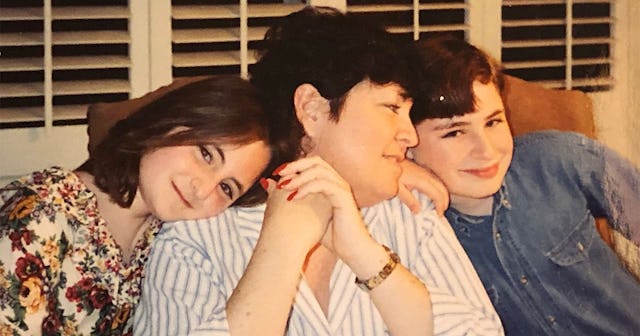True Crime Isn’t A Fad — It’s My Life

I am no stranger to true crime as a fan; growing up, the only books my mom ever had in her small, personal library were non-fiction narratives about murder. I know her draw to the subset was more than just a deep interest. She had lost her best friend in her early twenties to what she believed was foul play. Since that day, she developed a penchant for truth, justice, and criminal tales.
I also had my own adoration for the genre, too. As a preteen, after I had devoured all of R.L. Stine’s chapter books, and then Lois Duncan’s novels (like I Know What You Did Last Summer), I found Lois’s true crime memoir. It was entitled Who Killed My Daughter? and it was about her own daughter’s murder. It detailed Lois’s consequent search for the murderer, which remained active until Lois’s own death in 2016.
I was so obsessed, I wrote Lois a letter. Within a few months, she had written back a long, appreciative note. We even eventually became Facebook friends. Then in college, amidst my pursuit of a psychology degree, I took as many college courses on abnormal psych I could, devouring lessons about sociopaths and serial killers alike. I began dreaming of becoming a Criminal Profiler for the FBI one day.
Then, two weeks after I graduated college and before I buckled down and picked a Master’s program, my mom was murdered. The consequent legal battle to imprison her admittedly guilty murderer — my brother — was almost as traumatic as finding her lifeless body on our kitchen floor in a massive pool of blood.
But that’s the thing. A lot of people don’t realize that co-victims aren’t suddenly given the opportunity to start healing the moment our loved ones are murdered; the legal process and criminal justice system often postpones or arrests our healing. Sometimes for a lifetime.
courtesy of Amy B. Chesler
And that’s another thing I’ll have to do for the rest of my life: plead with the parole board to keep my brother (and abuser) within the confines of prison. In fact, the parole process started only nine and a half years after my brother’s conviction, ten days after my true crime memoir came out. So this is all more than just a new reality for me. “True crime” is (and always will be) my life.
That is all to say, despite having been a massive fan of true crime in the past, the genre took on a whole new meaning after mom’s murder. How could it not? These were no longer statistics to be aware of, or stories on a page; they became part of our family history. They are heartbreaking experiences that have changed my life and perspective forever.
And I’m not alone. In the United States, there are over 16,000 new murder victims a year. And since 2020, that number has increased 130%. That means there are that many more thousands of murder co-victims like me in existence, too. And in a world with an ever-increasing library of both crimes and crime documentaries, I’m asking (as a murder co-victim) for a little sensitivity and a change in dialogue.
I’m not asking for a recall on the whole true crime genre. Crime documentaries and memoirs are as much of my roots as is my Jewish culture. I also think it’s important to responsibly educate the masses about society’s ‘outliers.’ I’m simply asking other fans (and even content creators) to be cognizant of the words they use, and to be careful with their employment.
For example, the world-famous podcast “My Favorite Murder” — I’d never listen because the title is extremely triggering for me. Does that mean they should operate with only me in mind and change their title? No. But they should consider that their title is extremely objectifying to victims, and demeaning and hurtful to co-victims. Could they at least release a statement as to why they carry on with it? Absolutely.
We are learning as a culture to become more sensitive to others’ needs. As a result of this burgeoning safe space, many factions of minority and marginalized communities are sharing their experiences so we can learn from them and grow as a society. Of course, the onus shouldn’t be on these communities, including victims and co-victims of criminal activity. We have gone through enough trauma, and the only thing we are bound to now is healing, not sharing.
But there are many of us who have made it our mission to bring a more humanistic side to the true crime community. Some of my favorite true crime content creators are as follows: on Something Was Wrong, Tiffany Reese allows us a view of all types of abuse via firsthand victim accounts, and does so extremely tastefully. Author and podcaster Kim Goldman has transformed a part of her own public journey with murder and the legal system by creating moving, thoughtful content. And neither last nor least, Sarah E. Turney shares how social media enabled her to imprison her father for her sister’s murder over a decade after Alissa’s disappearance. Since then, she created the podcast Voices for Justice, and continues to offer amplification to other criminal justice travesties.
Thus, all I ask is that you please consider being more selective with your true crime intake. Because for us, this isn’t a fad, or an obsession. It’s a harsh reality, and our experiences deserve respect, as do our lost family members.
This article was originally published on